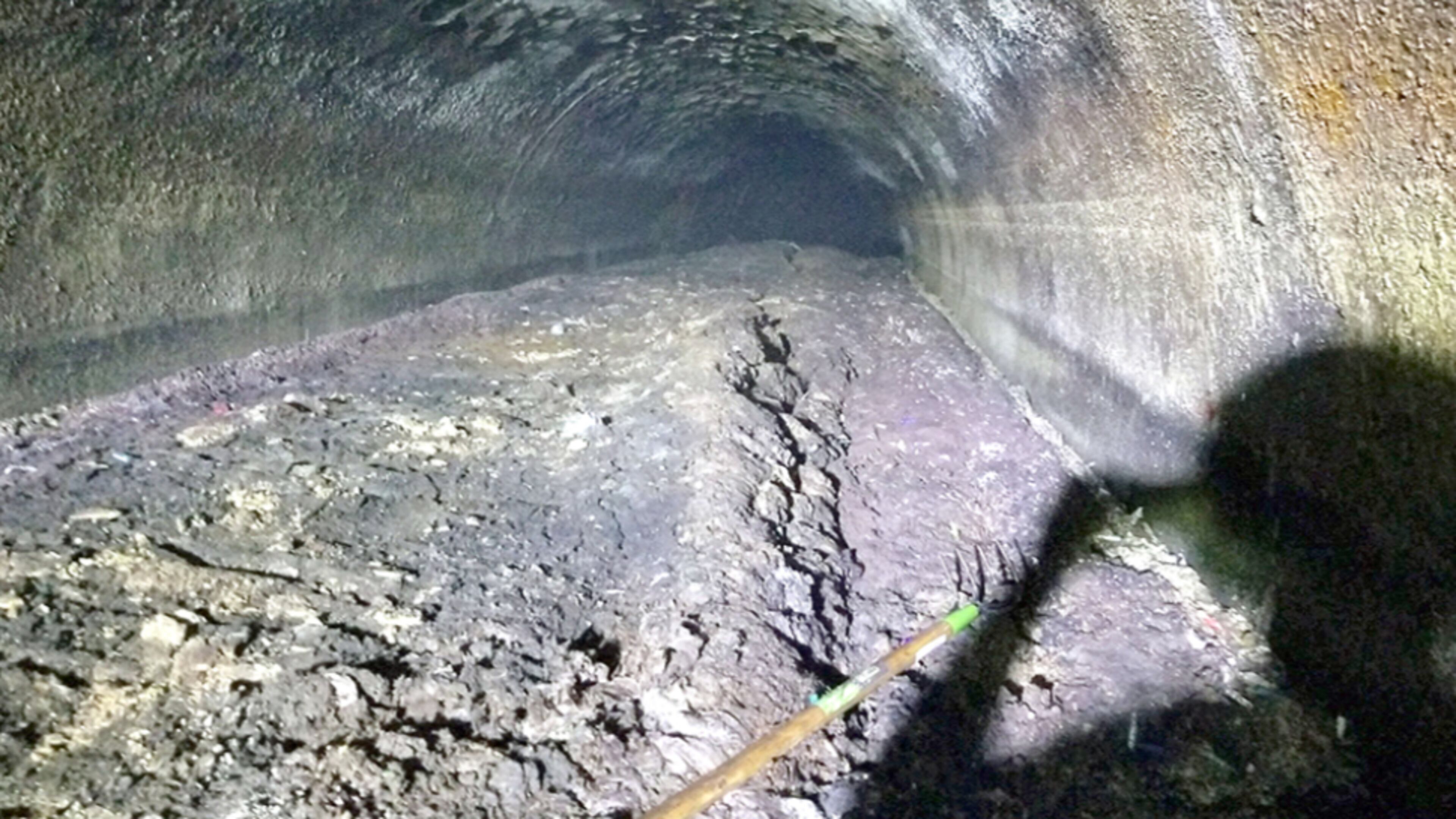Michigan officials discover 19-ton 'fatberg' in sewer line

Officials in Michigan are asking the public's help in fighting a greasy, stinky and gross enemy: the fatberg.
The Macomb County Public Works Office said this week it removed a 100-foot-long, 11-foot wide and as much as 6-foot-tall "fatberg," which is a collection of fats, oils and greases that mix and congeal with solid items flushed down sewer pipes. Officials said that baby wipes are the most common culprit.
In a news release, Macomb County Public Works Office said this week's fatberg discovery was "the largest such mass in the memory of sewer workers in Macomb County." The fatberg is estimated to weigh 19 tons, officials said.
The fatberg cost $100,000 to remove, WXYZ reported. In order to extract it, workers had to cut it into sections with handsaws, then suction it out of the sewer, the Macomb Daily reported.
County officials are planning a public education campaign to prevent fatbergs. Residents are urged not to flush baby wipes down the toilet, even if the package says they're flushable. When disposing of cooking grease, residents are urged to place it in a jar and dispose in the trash instead of pouring it down the sink.
Fatbergs can form in any sewer system. Last year, a fatberg was found in a Baltimore sewer, which caused more than a million gallons of sewage to spill into a river. A similar blockage caused 300,000 gallons to back up on the University of Michigan earlier this year, Macomb County officials said.

